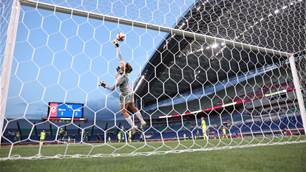The Venkys are the latest to make a mockery of the EPL’s “fit and proper” test
A lot can change in a decade, particularly in football. Just ask the crestfallen men and women who flock to Ewood Park every week to see their beloved Blackburn Rovers. Less than 20 years ago, they were crowned Premier League champions, toppling the mighty Manchester United, riding on the back of the millions of the club’s wealthy owner, Jack Warner. Today though, they face the reality of relegation, thanks in no uncertain terms to their current owners, the Venky Group, and their yes-man on the touchline, Steve Kean.
The Venky Group are just the latest owners to come into the Premier League and make a complete mockery of the Premier League’s flawed “fit and proper” person test. This test is supposedly meant to keep corrupt and untrustworthy businessmen from buying or having a controlling stake in the United Kingdom’s football clubs. It was introduced in 2004 and is designed to stop people with influence in the Football Association or Football Leagues as well as those who have been involved with insolvent clubs or those who have filed for bankruptcy from gaining controlling stakes, or even becoming directors, at football clubs.
Prior to 2004, the consensus from the authorities seem to be that no such test could be used, so perhaps just having such a test shows that there is some real intent from the various league governing bodies, as there should be, to protect their clubs from dodgy owners. Unfortunately, no matter how good their intentions, it would seem that the introduction of the test has offered little, if any, practical protection for clubs from unscrupulous, or perhaps just clueless, businessmen. With no ability to scrutinize the plans these people have for the clubs they are hoping to buy, whilst clubs are protected from owners with direct involvement in other clubs or the league as a whole, and those on the brink of bankruptcy, they cannot be protected from people who bring unsustainable business models to the table.
Since the introduction of the test, the following owners have been allowed to take controlling stakes in Premier League clubs:
Malcolm Glazer completed his takeover of Manchester United in 2005, saddling the club with a whopping $850 (USD) million worth of debt and using the clubs immense revenue streams to pay the debt off. Accounts also show that every year the Glazers take millions out of the club in what is usually termed “administration fees” with no direct investment from the Glazers into the club themselves. The club has remained successful, winning four league titles, a European Cup and various other domestic honours in that time, but serious concerns remain over the viability of the Glazer’s business model after it was revealed that of the total interest repayments made by Premier League clubs over the last financial year, Manchester United contributed a whopping 40%.
Alexandre Gaydamak gained control of Portsmouth in 2006, before being forced to sell the club, on the brink of administration only three years later. The club was supposedly “saved” by Sulaiman Al-Fahim in August 2009, but that would prove a false dawn. Al-Fahim sold 90% of the club only six weeks later to fellow Arab businessman Ali Al Faraj who stated that his buyout would, “ensure Portsmouth’s future is safe and will bring financial stability”. Today, Portsmouth are in the midst of administration for the second time in two years and have been relegated from the Championship following this season’s 10 point deduction for entering administration again.
George Gillet & Tom Hicks took control of Liverpool in 2007, driving the club into £350 million worth of debt. The two business partners funded mass spending in the transfer market by then manager Rafa Benitez, despite his complaints of a lack of funds, but eventually the two owners would grow apart and try to sell the club, under increasing pressure from the banks who were worried that the club could not pay off the debt imposed on it by the American businessmen which, according to auditor KPMG, placed “material uncertainty which may cast significant doubt upon [Liverpool’s] ability to continue”.
Thaksin Shinawatra bought out Manchester Cityin June 2007 after failed attempts with Fulham and Liverpool. He kick-started the nouveau riche revolution at the club, funding the purchase of many prominent footballers and installing Sven Goran-Eriksson as manager, but his political career left many questions over the validity of the “fit and proper” person test which he passed in the process of buying the club. The former Prime Minister of Thailand was the target of massive criticism from within his own country and externally for alleged infringement of human rights, corruption, muzzling of the press, tax evasion and other activities which have since seen him found guilty of a “conflict of interests” whilst in office. His legal battles back home eventually saw his assets frozen, and he was forced to sell the club, facilitating the deal which saw Sheikh Mansour take over the club.
Venky's Limited, a subsidiary of the V H Group owned by Dr. B. V. Rao, bought 99.9% of Blackburn Rovers shares in November 2010. The Venkys spoke a big game, promising massive investment into the club and promising the fans that their biggest names would not have to leave. A serious offer for Ronaldinho followed, but ended in rejection, and from then on any hope of massive investment subsided. Sam Allardyce was sacked almost immediately after the takeover with Steve Kean installed. Kean barely steered the club to safety last season, and after minimal investment in the first team, the supporters began to protest calling for Kean to be sacked and the Venkys to sell the club. Despite torrid form all season, resulting in relegation, Kean has remained in a job and the Venkys have no intention of selling nor sacking Kean, driving what once was one of the Premier League’s staple clubs into relegation and uncertainty over their long term future.
The list could go on, but by this point it is obvious that the “fit and proper” person test employed by the Premier League is not the most effective measure for keeping unfit owners out of their clubs. As the debt continues to rise in what is ironically the world’s most lucrative professional football league, and with some of the game’s biggest and most famous names on the line, one must seriously ponder whether or not enough is being done to protect football clubs from the hands of businessman who either do not care about the clubs, the fans and the players or simply do not have a clue how to run a successful football club, on and off the pitch.
Blackburn Rovers only serve the latest example of the dangers facing football in the day and age where money rules all and businessman can look at these clubs as potential for a quick buck or too without fully comprehending the risks involved. It is an appalling state of affairs when a club with almost 140 years of history can be brought to its knees in the space of 18 months by people who prior to their investment had no interest in the club.
“Fit and proper” persons? You’re having a laugh.
Related Articles

Postecoglou looking to A-League to 'develop young talent'
.jpeg&h=172&w=306&c=1&s=1)
Big change set to give Socceroos star new lease on life in the EPL












